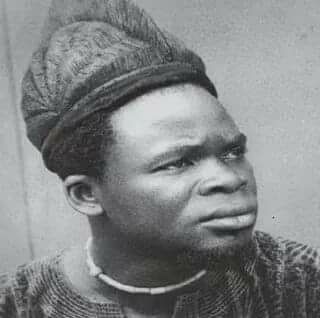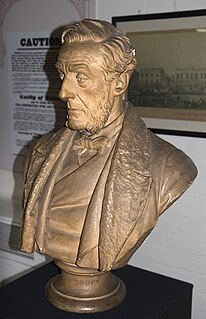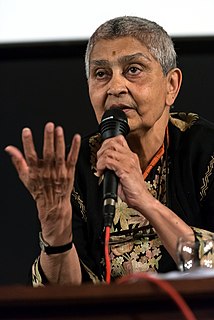 W
WThe architecture of Casablanca is diverse and historically significant. Casablanca, Morocco's economic capital, has a rich urban history and is home to many notable buildings in a variety of styles. Throughout the 20th century, architecture and urban development in Casablanca evolved in a way that was simultaneously specific to the city's contexts, and consonant with international ideas.
 W
WHomi K. Bhabha is an Indian English scholar and critical theorist. He is the Anne F. Rothenberg Professor of the Humanities at Harvard University. He is one of the most important figures in contemporary post-colonial studies, and has developed a number of the field's neologisms and key concepts, such as hybridity, mimicry, difference, and ambivalence. Such terms describe ways in which colonised people have resisted the power of the coloniser, according to Bhabha's theory. In 2012, he received the Padma Bhushan award in the field of literature and education from the Indian government. He is married to attorney and Harvard lecturer Jacqueline Bhabha, and they have three children.
 W
WAnna Camaiti Hostert is an Italian American philosopher and a scholar of Visual Studies. She lives and works between Italy and the United States.
 W
WSuzanne Césaire, born in Martinique, an overseas department of France, was a French writer, teacher, scholar, anti-colonial and feminist activist, and Surrealist. Her husband was the poet and politician Aimé Césaire.
 W
WVivek Aslam Chibber is an American academic, social theorist, editor, and professor of sociology at New York University, who has published widely on development, social theory, and politics. Chibber is the author of two books, Postcolonial Theory and the Specter of Capital and Locked in Place: State-Building and Late Industrialization in India.
 W
WRey Chow is a cultural critic, specializing in 20th-century Chinese fiction and film and postcolonial theory. Educated in Hong Kong and the United States, she has taught at several major American universities, including Brown University. Chow is currently Anne Firor Scott Professor of Literature in Trinity College of Arts and Sciences at Duke University.
 W
WIn Marxist philosophy, cultural hegemony is the dominance of a culturally diverse society by the ruling class who manipulate the culture of that society—the beliefs and explanations, perceptions, values, and mores—so that the worldview of the ruling class becomes the accepted cultural norm. As the universal dominant ideology, the ruling-class worldview misrepresents the social, political, and economic status quo as natural, inevitable, and perpetual social conditions that benefit every social class, rather than as artificial social constructs that benefit only the ruling class.
 W
WFrantz Omar Fanon, also known as Ibrahim Frantz Fanon, was a French West Indian psychiatrist and political philosopher from the French colony of Martinique. His works have become influential in the fields of post-colonial studies, critical theory and Marxism. As well as being an intellectual, Fanon was a political radical, Pan-Africanist, and Marxist humanist concerned with the psychopathology of colonization and the human, social, and cultural consequences of decolonization.
 W
WSandra G. Harding is an American philosopher of feminist and postcolonial theory, epistemology, research methodology, and philosophy of science. She directed the UCLA Center for the Study of Women from 1996 to 2000, and co-edited Signs: Journal of Women in Culture and Society from 2000 to 2005. She is currently a Distinguished Professor Emeritus of Education and Gender Studies at UCLA and a Distinguished Affiliate Professor of Philosophy at Michigan State University. In 2013 she was awarded the John Desmond Bernal Prize by the Society for the Social Studies of Science (4S).
 W
WDurodola Durosomo Duroorike Timothy Adisa Ladipo, more commonly known as Duro Ladipo was one of the best known and critically acclaimed Yoruba dramatists who emerged from postcolonial Africa. Writing solely in the Yoruba language, he captivated the symbolic spirit of Yoruba mythologies in his plays, which were later adapted to other media such as photography, television and cinema. His most famous play, Ọba kò so, a dramatization of the traditional Yoruba story of how Ṣango became the Orisha of Thunder, received international acclaim at the first Commonwealth Arts Festival in 1965 and on a European tour, where a Berlin critic, Ulli Beier, compared Ladipọ to Karajan. Ladipo usually acted in his own plays.
 W
W"A land without a people for a people without a land" is a widely cited phrase associated with the movement to establish a Jewish homeland in Palestine during the 19th and 20th centuries.
 W
WDominique-Octave Mannoni was a French psychoanalyst and author.
 W
WJoseph-Achille Mbembe, known as Achille Mbembe, is a Cameroonian philosopher, political theorist, and public intellectual.
 W
WMohammed Taki Mehdi, commonly M. T. Mehdi was an Arab-American based in New York and one of the earliest pro-Palestinian activists in the United States, and often brash in his defense of the Palestinian cause. He held debates on television and radio with many supporters of Israel, including the rabbi Meir Kahane. He died of cardiac arrest at Bellevue Hospital in 1998.
 W
WAlbert Memmi was a French-Tunisian writer and essayist of Tunisian-Jewish origins.
 W
WChandra Talpade Mohanty is a Distinguished Professor of Women's and Gender Studies, Sociology, and the Cultural Foundations of Education and Dean's Professor of the Humanities at Syracuse University. Mohanty, a postcolonial and transnational feminist theorist, has argued for the inclusion of a transnational approach in exploring women’s experiences across the world. She is author of Feminism Without Borders: Decolonizing Theory, Practicing Solidarity, and co-editor of Third World Women and the Politics of Feminism, Feminist Genealogies, Colonial Legacies, Democratic Futures, Feminism and War: Confronting U.S. Imperialism,, and The Sage Handbook on Identities.
 W
WDarnell L. Moore is an American writer and activist whose work is informed by anti-racist, feminist, queer of color, and anti-colonial thought and advocacy. Darnell's essays, social commentary, poetry, and interviews have appeared in various national and international media venues, including the Feminist Wire, Ebony magazine, The Huffington Post, The New York Times, and The Advocate.
 W
WPostcolonial Theory and the Specter of Capital is a 2013 book by the Indian sociologist and New York University professor Vivek Chibber.
 W
WAníbal Quijano was a Peruvian sociologist and humanist thinker, known for having developed the concept of "coloniality of power". His body of work has been influential in the fields of decolonial studies and critical theory.
 W
WMasood Ashraf Raja is an associate professor of postcolonial literature and theory at the University of North Texas. He is also the editor of Pakistaniaat: A Journal of Pakistan Studies, an open access journal that he founded in 2009.
 W
WGuido Rings is Professor of Postcolonial Studies, director of the Research Unit for Intercultural and Transcultural Studies (RUITS), and Course Leader for the MA Intercultural Communication at Anglia Ruskin University in Cambridge, UK. He was previously Reader in Intercultural Studies and Head of Modern Foreign Languages at the same institution, and he was Visiting Professor for Romance Literature and Film at the University of Düsseldorf and the University of Bayreuth, Germany. Professor Rings is also co-editor of German as a Foreign Language (GFL) and Interdisciplinary Mexico (iMex), the first fully refereed internet journals in Europe for their respective fields. He is member of the Higher Education Academy (HEA).
 W
WGayatri Chakravorty Spivak is an Indian scholar, literary theorist, and feminist critic. She is a University Professor at Columbia University and a founding member of the establishment's Institute for Comparative Literature and Society.
 W
WIn postcolonial studies and in critical theory, the term subaltern designates and identifies the colonial populations who are socially, politically, and geographically excluded from the hierarchy of power of an imperial colony and from the metropolitan homeland of an empire. Antonio Gramsci coined the term subaltern to identify the cultural hegemony that excludes and displaces specific people and social groups from the socio-economic institutions of society, in order to deny their agency and voices in colonial politics. The terms subaltern and subaltern studies entered the vocabulary of post-colonial studies through the works of the Subaltern Studies Group of historians who explored the political-actor role of the men and women who constitute the mass population, rather than re-explore the political-actor roles of the social and economic elites in the history of India.
 W
WHarry Thuku was a Kenyan politician, one of the pioneers in the development of modern African nationalism in Kenya. He helped found the Young Kikuyu Association and the East African Association before being arrested and exiled from 1922 to 1931. In 1932 he became President of the Kikuyu Central Association, in 1935 founded the Kikuyu Provincial Association, and in 1944 founded the Kenya African Study Union. Opposed to the Mau Mau movement, he later retired to coffee-farming.
 W
WTrinh T. Minh-ha is a Vietnamese filmmaker, writer, literary theorist, composer, and professor. She has been making films for over thirty years and may be best known for her films Reassemblage, made in 1982, and Surname Viet Given Name Nam, made in 1985. She has received several awards and grants, including the American Film Institute's National Independent Filmmaker Maya Deren Award, and Fellowships from the John Simon Guggenheim Foundation, the National Endowment for the Arts and the California Arts Council. Her films have been the subject of twenty retrospectives.
 W
WJeff Wassmann is an American artist, writer and theorist, currently living in Melbourne, Australia. His first novel, The Buzzard, was released in October 2012. Wassmann's art work incorporates assemblage, photography, web-based new media and aspects of culture jamming.